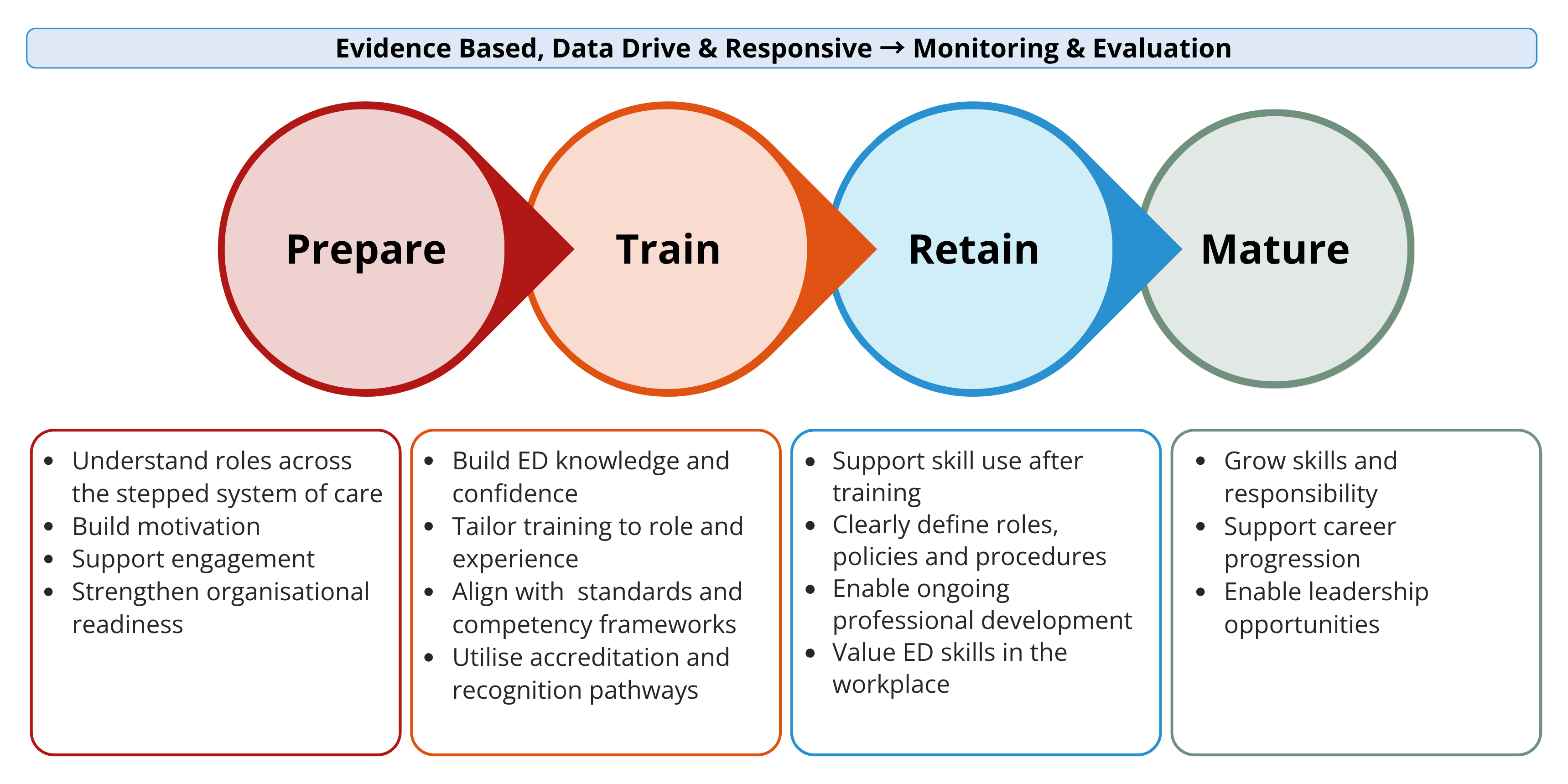Workforce Development Hub
The NEDC Workforce Development Hub is designed to support individuals, managers, leaders and services to search for and access a broad range of evidence-based eating disorder workforce and professional development tools and resources. The hub is a key initiative of the National Eating Disorders Strategy 2023-2033 and aims to overcome key barriers to developing eating disorder related capabilities in health, mental health, education, social and community services workers and services.
Workforce Development Model
Resources within the Workforce Development Hub align with the key elements of NEDC’s workforce development model and support both individual professional development and broader workforce development across these four key domains including preparation, training, retention and maturity.
Learn more about models that underpin workforce development here.

How to use the Hub
To use the Hub, select the filters that apply to your current professional or workforce development needs. Based on your filter selection, you will be directed to a tailored workforce development database that will list resources and tools that match your identified needs.

